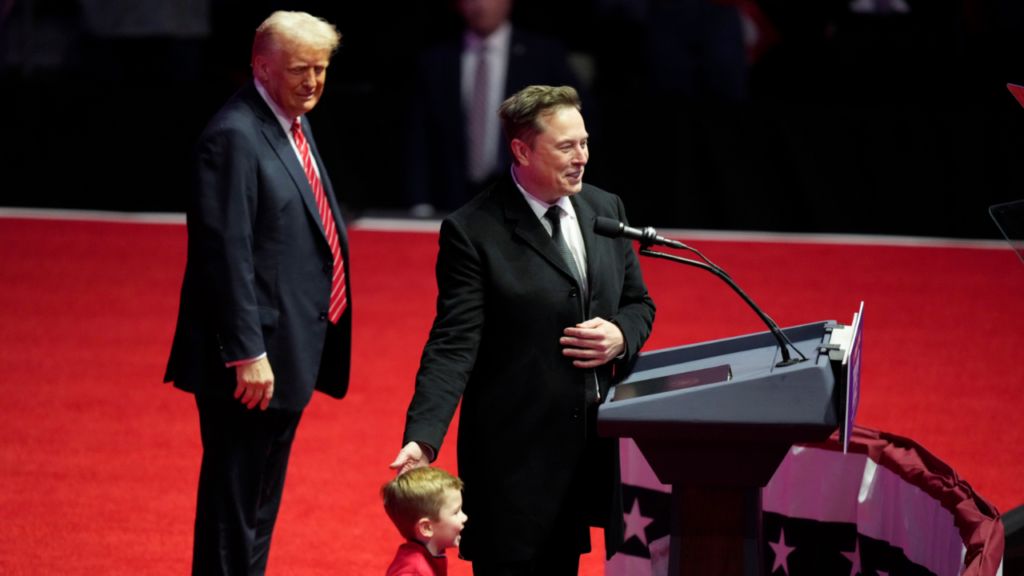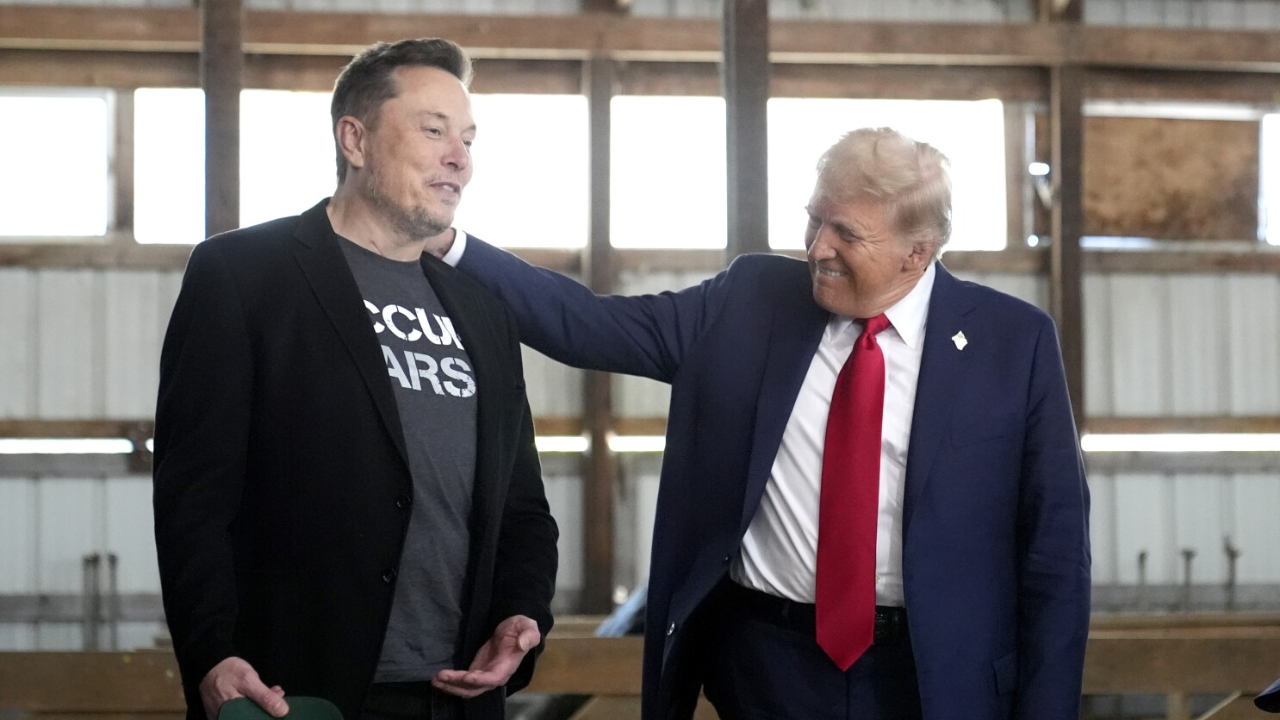A new poll has shown that both Donald Trump and Elon Musk are not as popular as they might think. Since Trump returned to the White House three months ago, Americans have started forming strong opinions about how he is handling the country—and many of those opinions are not positive.
According to the latest Amherst poll by the University of Massachusetts, more Americans now disapprove of Trump’s job performance than those who approve.
The poll reveals that only 44% of people support the job he’s doing, while 51% disapprove. That’s not a good sign for someone who’s just started his second term.
Trump’s actions in these first few months have made headlines for many reasons. His aggressive trade tariffs have added more uncertainty to an already struggling economy, and his strict approach to immigration has stirred up more debate.
But the real concern among voters seems to be inflation. A whopping 62% of Americans believe that Trump is not handling inflation properly. And 58% also feel he’s doing a poor job when it comes to trade policies.
Professor Jesse Rhodes, a political science expert from UMass Amherst and co-director of the poll, explained that public opinion on the economy has played a major role in shaping past elections.
“The belief that Joe Biden and the Democrats were mishandling the economy led to Kamala Harris losing in 2024,” he said. “If Trump and the Republicans don’t improve things quickly, they could face a similar fate in the next elections.”
One of Trump’s biggest decisions since returning to office was choosing Elon Musk to lead a new federal agency called the Department of Government Efficiency, or DOGE for short. The goal of DOGE was to cut $1 trillion in government spending by the end of this fiscal year, which ends on September 30.
But Musk’s time in Washington hasn’t been smooth. Despite the big promises, Musk recently admitted that he might only be able to cut 15% of that original $1 trillion target. That’s a big drop from what people were expecting.
Musk’s plan to cut spending involved canceling government contracts, shutting down federal programs, and laying off thousands of government workers.
These moves caused a lot of chaos, which attracted criticism from both political parties and the public. While Musk has said that most of the department’s work should be finished by the end of May, many Americans aren’t convinced he’s the right man for the job.
In fact, another UMass Amherst poll found that most Americans don’t trust Musk when it comes to making decisions about federal spending.
About 53% said they don’t believe Musk knows how to identify the right programs to cut. Around 55% said they don’t trust him to protect citizens’ private information, and 59% believe he will use his government role to benefit his business interests.
Professor Tatishe Nteta, who directs the poll, believes this growing distrust is pushing people to want Musk to leave Washington altogether.

“Given how unpopular Musk’s budget cuts have been, it’s no surprise that many Americans expect him to return to the private sector soon,” she said.
But it’s not just government polls showing Musk’s fall in public favor. Nate Silver, a well-known statistician, has been tracking Musk’s overall popularity across multiple surveys.
His data shows that only 39.4% of Americans have a positive view of Musk, while 52.7% have a negative opinion of him. That’s a major image problem for someone with such a powerful role.
Even more interesting is that Musk’s popularity is now lower than Trump’s, despite Trump’s approval ratings falling.
Silver says Musk is still going to be an important figure in public life, whether people like him or not. But as long as Musk is involved in politics, he might be a burden for Trump rather than a boost.
Another factor hurting Trump’s reputation is the controversy around the Nazi salute allegations during his inauguration. While the White House has denied any connection, the story went viral and added fuel to an already heated political environment.
There’s also the issue of Trump’s financial support for Republican judge Brad Schimel’s campaign in the Wisconsin Supreme Court election. Trump donated a huge $25 million to help Schimel, raising questions about whether he’s trying to influence the courts for political gain.
These back-to-back controversies are building up, and it’s becoming harder for Trump and Musk to escape the headlines.
While both of them are powerful in their own right, the polls are showing that public trust and popularity can fade quickly, especially when promises aren’t kept or decisions feel out of touch with everyday Americans.
Trump’s return to power has not been as smooth as he hoped. And Musk’s move from tech entrepreneur to government leader has faced more challenges than expected.
With approval ratings dropping and criticism piling up, both of them might need to rethink their strategies if they want to win back public support.
As the months go by and more decisions are made in Washington, the real test will be whether Americans start to feel the impact of those decisions in their daily lives. Until then, the polls are likely to remain a warning sign that things need to change—and fast.
Disclaimer- Our team has thoroughly fact-checked this article to ensure its accuracy and maintain its credibility. We are committed to providing honest and reliable content for our readers.






